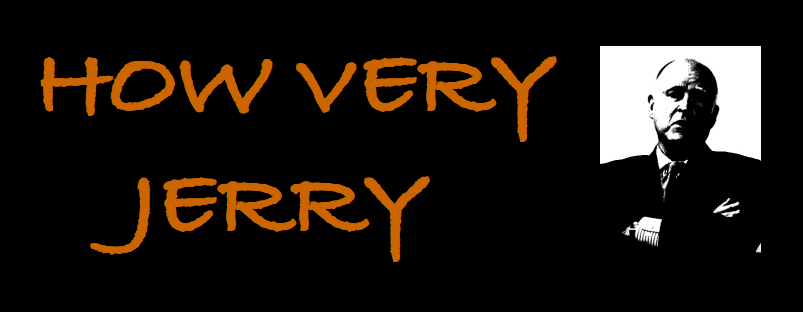
A Bay Area Journalist's First-Hand Account Of How Mayor Jerry Brown Screwed Over Oakland On His Way To Sacramento
THE IMPACT OF OPERATION IMPACT J. Douglas Allen-Taylor My parents moved to an all-white East Oakland neighborhood in 1941, during the war. My father was a shipyard worker at Mare Island, and later an Oakland firefighter. Afterwards, my parents built a grocery store, which they operated for more than 40 years. Still, my parents were (and this must be said with lowered voice, and a narrowed glance, and one hand cupping the mouth) niggers, and in 1941, many white folks were still not quite certain what niggers would amount to or whether they might bring down the neighborhood. And so, in 1941, several of the good white folks got together and tried to keep the real estate agent from selling a home to my parents. They failed. In fact, other black folks followed, many of them first-time homebuyers who also joined the Oakland Fire Department. Discouraged, the good white folks emptied our East Oakland neighborhood, moving to San Leandro and San Lorenzo, or across the foothills to the then-almost wilderness valley of eastern Contra Costa County. And that's how our part of East Oakland came to be mostly-black, with a later flavoring of Latino. In its story on the first four months of Operation Impact, the Tribune reported that "the CHP arrested almost 600 people for various crimes [during the patrols], issued 1,564 traffic citations, towed 908 vehicles and seized six guns and 12 stolen cars." Since there's no way to evaluate what the "various" means in "various crimes," there's no way to assign any meaningful inference to the 600 arrests. Were these people stopped in the commissions of serious crimes, or were they people picked up for bench warrants because they'd missed a child support payment? Only the CHP knows. The 1,500 traffic citations is equally mystifying: are we talking about ticketing dangerous speeders and redlight-runners, or are these mostly expired tags and bad tail lights? Given what we can reasonably surmise about attitudes towards dark Oaklanders by at least some CHP officers (see the first two paragraphs of this column), can we rule out that much of what CHP is crowing about as operational success is merely harassment? But, finally, for an operation that was specifically designed to put a dent in Oakland's handgun-driven murders, the finding of only six seizable guns amidst all this police activity seems a waste of resources. That's borne out when we look at Operation Impact's reported impact on crime in our city. The Tribune says that during the four month life of the program, minor crimes in Oakland were down 28% from a year before. Okay. Good enough, though nobody knows if Impact was the actual cause. Serious crime (homicide, robbery, and assault), on the other hand, were down only 6%. Further, one has to be careful about comparing murders in Oakland at the end of 2003 with murders at the end of 2002, since the 2002 end-of-year murders involved an aberrational killing spree by a group called the Nut Case Gang who boasted that they shot people in some cases solely in order to increase the number of Oakland murder victims. And with Operation Impact in operation, there have been 17 murders so far in the first six weeks of 2004, more than double the number of the same period in 2003, a 3-murder-a-week rate that would top 150 killings if continued for the whole year. Operation Impact, therefore, hasn't had much impact on the one problem it was supposed to address. In November of 2002, Oakland voters liked the idea of putting 100 more police officers on our streets as a response to the rising murder rate, but rejected the accompanying funding measures that would have made the hiring of those 100 officers possible. Mayor Jerry Brown's measures were so poorly put together, and the campaign for them was so poorly organized, that to this day nobody can be quite certain for what reason they lost. I'm glad it did, though. Councilmember Larry Reid is fond of calling Oakland's murders "insane," which is his way of saying, I suppose, that he doesn't understand why the murders are happening. That lack of even an attempt at understanding by most Oakland public officials has led to this idea of merely flooding Oakland's streets with police officers. Whether those officers are OPD or CHP or Alameda County deputies, it hasn't provided a solution. Perhaps the time has come for us to have a public discussion as to why, and what's next to be done.
|